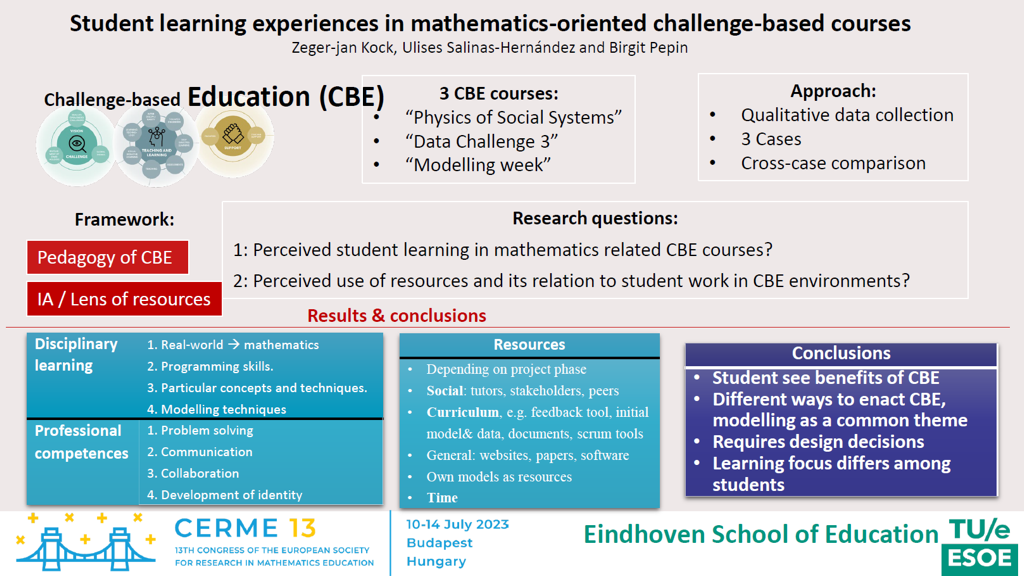Project introduction and background information
An increasing number of engineering universities have been striving to implement challenge-based education (CBE) as a means for students to combine the acquisition of disciplinary knowledge with the development of transversal competencies while working on authentic and sociotechnical problems. This approach includes learning in multidisciplinary teams while designing prototype solutions for real-life challenges connected to global themes, with the involvement of stakeholders. In CBE, learning may need to be supported by technology-enhanced learning environments.
In the TU/e vision on education in 2030, CBE plays a central role in educating the engineers of the future. From earlier studies, it appears that for some faculties CBE is the natural next step in their education innovation, whereas for others innovating their curriculum towards CBE seems to need more time, consultation and experimentation. Until recently, the latter situation also applied to the applied mathematics and physics departments. At the same time there are many promising master courses in the applied mathematics and physics departments that lean on a CBE approach. Moreover, in the large first year courses, mathematics and physics are trialled along CBE lines.
Objective and expected outcomes
The aim of the project is to support the mathematics and physics engineering disciplines to provide their education in terms of CBE. In order to do so, we listen to the instructors’ and designers’ voices and most importantly, to the students’ voices concerning their learning experiences in CBE courses, including their benefits and needs. As there is experimentation with CBE from teachers in specific courses in mathematics and physics, we want to know the experiences, in particular student experiences, in these innovative learning environments. Therefore, we address three sub-themes:
1. We address the 'intended curriculum' (e.g., aim, content, teacher role, learner activities, learning environment assessment, time use, collaboration, resources used). We investigate the intended curriculum of CBE courses, situated in the general higher engineering education scene at TU/e. Deans and policy makers of TU/e will provide context data that surround the cases.
2. We address the 'enacted curriculum’. We investigate how discipline-educated university teachers experience and develop their roles; and how they develop new interactions with students.
3. We address the ‘experienced curriculum’ at student level. We investigate how students learn in such innovative learning environments, in particular with respect to their use of resources and the support they (perceive to) need for their learning, what kinds of skills and capacities they develop, and which work forms (they perceive) work best for them.
In the study we will use a case study approach and mixed methods within the cases, to investigate students' learning experiences in three selected TU/e courses and environments: (1) a course for mathematics and/or physics students in an early stage of their Bachelor programs; (2) a course at the end of the Bachelor program (the Innovation Space Bachelor End Project ); (3) a Master course for mathematics students, the mathematics “Modelling week”. These courses (and environments) have been purposefully chosen, as (a) they all use a CBE approach; and (b) they are courses at different levels of students’ education trajectory: 1st year; 3rd year; 4th year.
(Image: Bart van Overbeeke Photography)
Results and learnings





